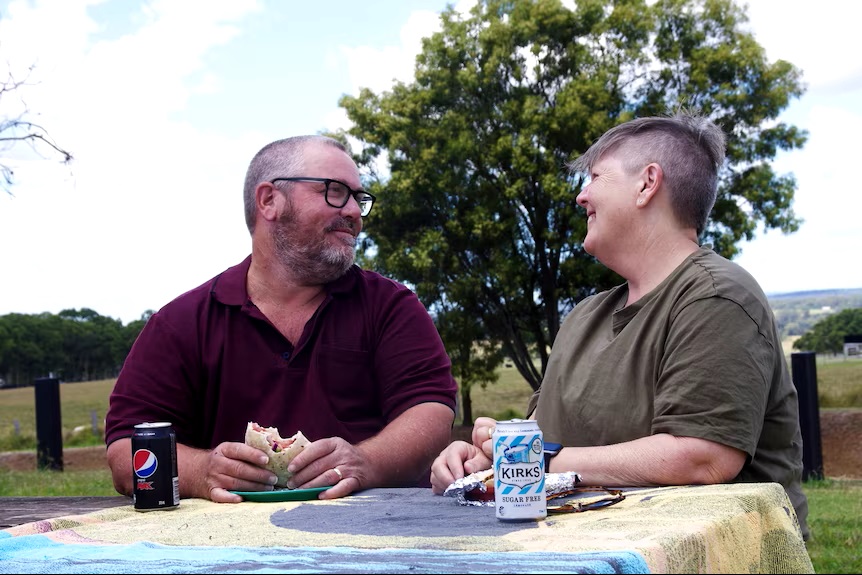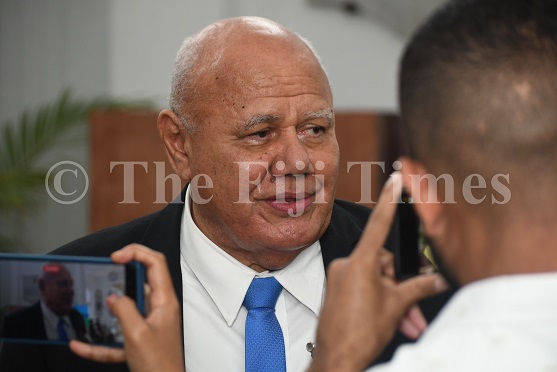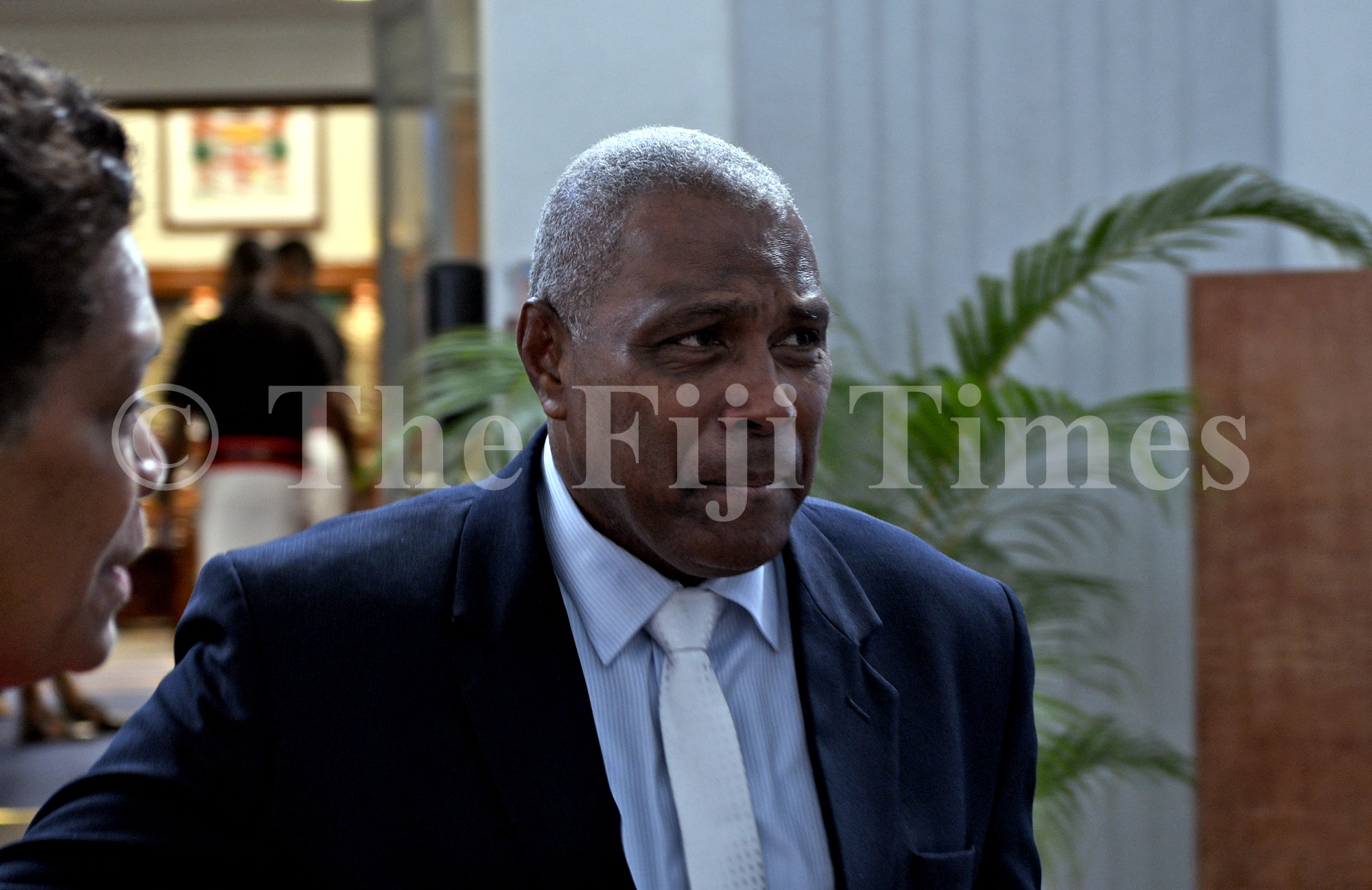Greg Harvey woke up one morning in August 2017 thinking it was 2005. “I was in a panic because I thought I was going to be late to uni,” Mr Harvey said.
Mr Harvey could not remember the past 12 years of his life.
“Then I noticed the house all looked different. We’d had the carpets removed and tiles put on the floor, the furniture was different.”
“Then I said, ‘Well, where are the kids?’” In 2005, Mr Harvey and his wife Gale had kids that were aged six and eight. When he lost his memory, he also lost the years of his kids growing up and moving out.
A decade lost
“When she told me what year it was I nearly fainted,” Mr Harvey said. The panic started to set in for Gale when she showed him photos of their kids, now much older than Greg remembered.
“I said, ‘That’s what they look like now’. He said, ‘No they don’t, they’re in primary school’.” Ms Harvey said.
“I’m thinking, ‘what the hell is going on here?’” To try to jog his memory they went to the preschool he was teaching at, but the experience of not knowing anybody – who all seemed to know him – was overwhelming.
“While I’m sitting in the foyer talking to the director, the kids in the room that I was teaching were at the window … calling out my name and I just lost it,” Mr Harvey said.
“It brought me to tears because I didn’t know who they were.”
Why did Greg lose his memory?
Mr Harvey went to see doctors in the New South Wales’ Hunter Valley where he lives. They suggested he had experienced an episode of transient global amnesia. Transient global amnesia typically takes people by surprise and lasts for 24 hours.
“The person becomes suddenly confused. They don’t know where they are, what they’re doing. They might ask the same question over and over because they can’t remember the answers,” said Professor Henry Brodaty, from the University of New South Wales’ Centre for Healthy Brain Ageing.
“They seem to be thinking normally, but it’s like they’re in a fog.” While it may sound like a product of lazy writing from a daytime soap, the condition is real – although exceptionally rare. Prof Brodaty said it affected about five out of every 100,000 people a year, usually middleaged people.
The condition usually resolves itself within 24 hours. However, this was not the case for 56-year-old Mr Harvey, who has never recovered his memories. Ms Harvey said when the amnesia occurred, her husband was seeing a psychologist for depression and was stressed by his job, to the point where he was considering changing careers.
Ms Harvey believed it had all became too much for him. “The brain just went, ‘Fine, we’re stepping off, we’re done. You can’t take this anymore’,” Ms Harvey said.
A more serious case
When amnesia happens due to a psychological cause, it is known as psychogenic amnesia or dissociative amnesia. Unlike transient global amnesia, the memory loss is typically permanent. “It’s characterised by a sudden loss of autobiographical memories, and it’s often carried in the context of a stressful life event,” Prof Brodaty said.
“It’s a psychological mechanism preventing the person remembering things, presumably because they’re too painful.” Prof Brodaty said while it could affect people at any age, he had never personally seen a case in 50 years of practising psychiatry.
While those affected can lose their memories permanently, occasionally the memories can come back. “Sometimes it comes back when the stress has returned,” Prof Brodaty said. “Or sometimes when people engage in therapy … they may be able to recover those memories.
“It’s not like they lost memories. It’s like the mind has walled them off from the aware part of the brain.”
‘Nobody was expecting it’
Amnesia can happen to people at a younger age than Mr Harvey. Anne Howell was 31 years old when she developed amnesia, after contracting meningitis during the process of major brain surgery. Ms Howell woke from a coma and thought she was nine years old.
Ms Howell documented her recovery and rediscovering her life in her book All That I Forgot. What Ms Howell suffered was retrograde amnesia, which typically occurs after a head injury.
Re-learning a lifetime
Prof Brodaty said not all patients could regain the memories they been lost, so treatment focused on helping them make new memories. “You can’t reverse the trauma, because that’s happened,” Prof Brodaty said. “But you can do exercises for people on how to help their memory.”
Mrs Harvey has come to terms with what has happened to her husband of 28 years. The couple is now focused on making new memories. It provided the perfect opportunity for the pair to go out to picnic spots in their region, including places they had been before and where they had never been.
“We’ve just been to all different places and trying to make good memories and just be more open to suggestions,” Mrs Harvey said. Mr Harvey is also at peace with what happened, although he is still bitter about missing his children’s formative years.
“They were six and eight in 2005, and I remember them in their 20s,” Mr Harvey said. “I’ve missed all that bit inbetween.” Mr Harvey also believes bottling up his stress may have led to his amnesia. The experience has inspired the couple to be more open about their mental health.
• ABC • DECLAN BOWRING is a digital reporter at ABC Radio Sydney. The views expressed in this article are the author’s and not necessarily the views of The Fiji Times.






